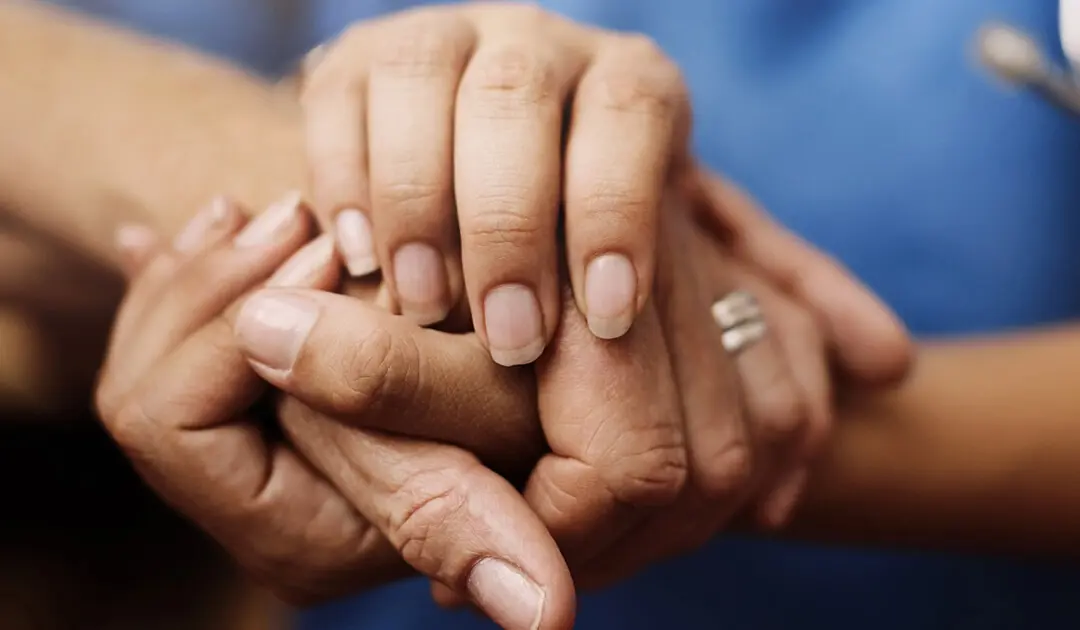How Clinical Holding Training Can Help Your Staff

At CPI, we are dedicated to changing behaviours and reducing conflict for the Care, Welfare, Safety, and SecuritySM of everyone. We believe in the power of empathy, compassion and meaningful connections.
We believe personal safety and security are the antidotes to fear and anxiety. It’s a philosophy that is central to everything we do and traces back to our beginning. It is what defines and differentiates us and informs our core beliefs.
Much of our focus has always been on developing ways that we can reduce restraint in settings where staff can be trained and empowered to develop ways in reducing conflict, preventing escalating behaviours as well as improving relationships between staff and service users.
Prioritising patient safety
However, there are many circumstances, especially in health or social care, where it is not always possible to reduce or eliminate physical intervention. The circumstance may dictate that to intervene in a certain way is the most appropriate course of action particularly when prioritising patient safety.
When we first started speaking with NHS staff, it was clear they understood and recognised that there is an absolute requirement for frontline staff to be equipped with skills that would give them the confidence and knowledge to respond appropriately to a wide variety of situations and behaviours.
We know that low staff morale can be difficult to manage and experience, especially in light of the recent years and the impact on everyone’s mental health.
What became quite clear is that not all staff in a frontline environment were trained in clinical holding skills let alone how to intervene reasonably and proportionately regardless of an absolute requirement to be.
Because of this lack of training we have been told staff are at times lacking in confidence when it comes to having to hold a patient for an essential procedure or intervention.
In speaking with managers and other senior leaders there also seems to be uncertainty around who can provide this training and staff were unsure where to get training from and if it actually existed.
People working in the mental health and social care services as well as special care dentistry and acute hospital settings are very often driven by a desire to provide the most suitable care ensuring it is safe, ethical and patient centred.
Lack of holding skills
It is clear therefore that without adequate training, staff will naturally be uncomfortable from a legal and ethical point of view, questioning whether they should they be holding a particular patient or service user without having being trained.
All frontline staff want to help the people in their care, however quite often no one wants to identify where responsibility sits when considering situations that do require physical intervention.
Often, where staff don’t feel equipped or confident to provide the appropriate response and support, security teams are being used to manage a restraint.
Although at Trust level this was deemed acceptable and a solution to the issue, from a regional level and higher up utilising security staff to restrain patients or service users in order to provide essential treatment was seen as something they didn’t want to happen and it needed to be stopped.
CPI Clinical HoldingSM programme has been designed to give frontline staff, in circumstances where treatment for a person who lacks capacity is necessary, the best knowledge and skills supported by current legislation that requires front line professionals to take a course of action which is in the person’s best interests.
Resistive and aggressive behaviour can be presented during the delivery of treatment therefore requiring staff to use safe restraint methods.
As this course of action is related to an individual without capacity, the term ‘clinical holding’ is used as a differentiation from the general use of restraint in acute healthcare settings which is solely associated with violence.
Our evidence-based approach has been successfully used for over 40 years and is nationally and internationally accredited by IACET, RQF and CPD and is certified as meeting the RRN Training Standards when delivered as part of the Safety Intervention™ training programme.
Clinical Holding training emphasises safe and proportionate physical intervention in situations requiring a person’s best interests to be prioritised.
We're delighted to add that our Clinical Holding programme was Highly Commdended in the Best Educational Programme category of the HSJ Partnership Awards 2023.